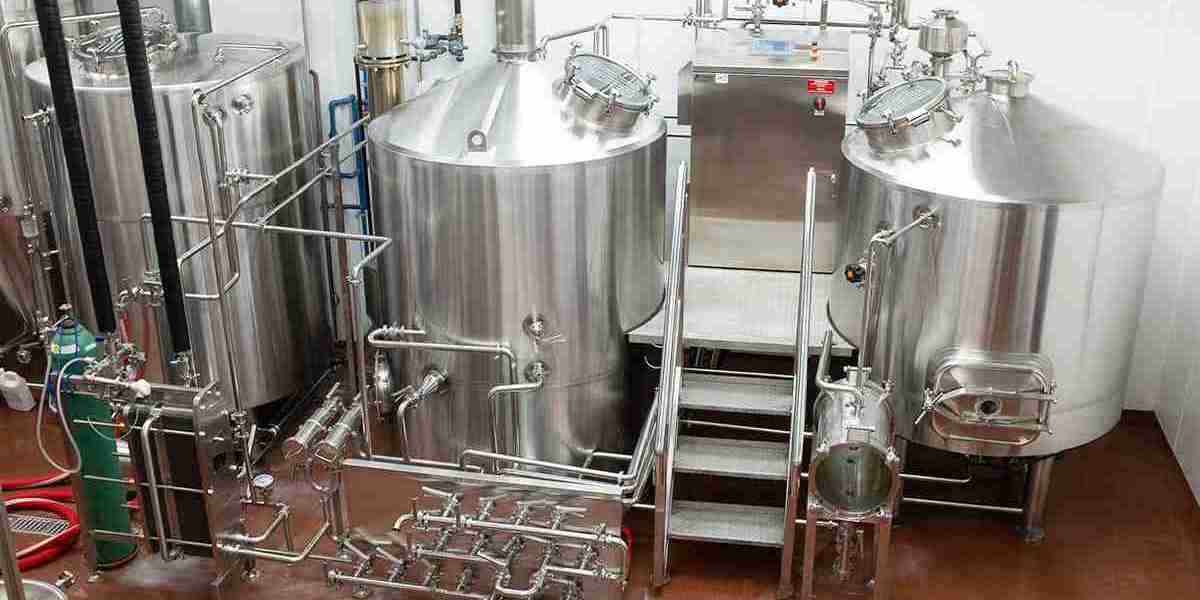What is a Fermentation Tank?
A fermentation tank is a specialized vessel used to conduct the fermentation process, where microorganisms such as yeast or bacteria convert raw materials into products like alcohol, biofuels, or fermented foods. These tanks provide the perfect environment for the microbes to grow, multiply, and produce the desired end product. Fermentation tanks come in various shapes, sizes, and materials depending on their application.
To explore more about fermentation tanks, you can check out this detailed fermentation tank guide.
Key Features of a Fermentation Tank
When choosing a fermentation tank, it's important to consider several key features to ensure optimal fermentation. Here are the top characteristics of a high-quality fermentation tank:
1. Material Construction
Fermentation tanks are typically made from stainless steel due to its resistance to corrosion, ease of cleaning, and durability. Stainless steel also prevents contamination of the fermenting product, ensuring a high-quality outcome.
2. Temperature Control
Temperature plays a crucial role in the fermentation process. A good fermentation tank will have built-in temperature controls, such as jackets for cooling or heating, to maintain the ideal fermentation temperature. This is especially critical in brewing and winemaking, where temperature can impact flavor and fermentation speed.
3. Pressure Resistance
Some fermentation processes require pressure to ensure proper fermentation. Fermentation tanks often come with pressure relief valves, ensuring that they can handle internal pressures without risk of failure.
4. Clean-in-Place (CIP) System
Cleaning and sanitizing a fermentation tank is a vital part of maintaining product quality. A fermentation tank with a CIP system enables easy cleaning without needing to disassemble the unit, saving time and reducing the risk of contamination.
5. Capacity
Fermentation tanks are available in various sizes, ranging from small laboratory-scale tanks to large industrial-scale vessels. The capacity you need depends on the scale of your fermentation process, whether you're fermenting small batches of beer or large quantities of biofuel.
Uses of Fermentation Tanks
Fermentation tanks are versatile and used in various industries. Here are some common applications:
1. Brewing and Winemaking
Fermentation tanks are most commonly used in the brewing and winemaking industries. They allow for the controlled fermentation of wort into beer or grape juice into wine, respectively. Temperature control and proper oxygen management are essential in these industries to ensure the quality and consistency of the final product.
2. Biofuel Production
Fermentation tanks are also widely used in the production of biofuels such as ethanol and biodiesel. In these tanks, sugars from raw materials like corn or sugarcane are fermented by microorganisms to produce ethanol, which is then distilled into fuel.
3. Food and Dairy Processing
Fermentation tanks are critical in the production of a variety of food products, including yogurt, cheese, and sauerkraut. These tanks provide the ideal environment for beneficial bacteria to ferment milk, vegetables, and other substrates into delicious, nutrient-rich foods.
4. Pharmaceuticals and Biotechnology
In the pharmaceutical and biotech industries, fermentation tanks are used to produce antibiotics, vaccines, and other bioengineered products. The controlled environment in these tanks allows for optimal microbial growth, ensuring high yields of the desired compounds.
Why Invest in a High-Quality Fermentation Tank?
Investing in a fermentation tank is essential for any business or individual involved in fermentation-based production. A well-designed fermentation tank helps streamline the production process, reduce contamination risks, and ensure consistent product quality. By choosing the right tank with the necessary features, you can improve efficiency and increase the output of your fermentation processes.
Conclusion
Whether you're brewing beer, producing biofuels, or manufacturing fermented foods, a high-quality fermentation tank is indispensable for success. By understanding the key features and applications of these tanks, you can make an informed decision on the best equipment for your needs. With proper maintenance and temperature control, a fermentation tank can significantly enhance the quality and yield of your product.
If you're looking to invest in a fermentation tank, check out this comprehensive fermentation tank guide for more information.






